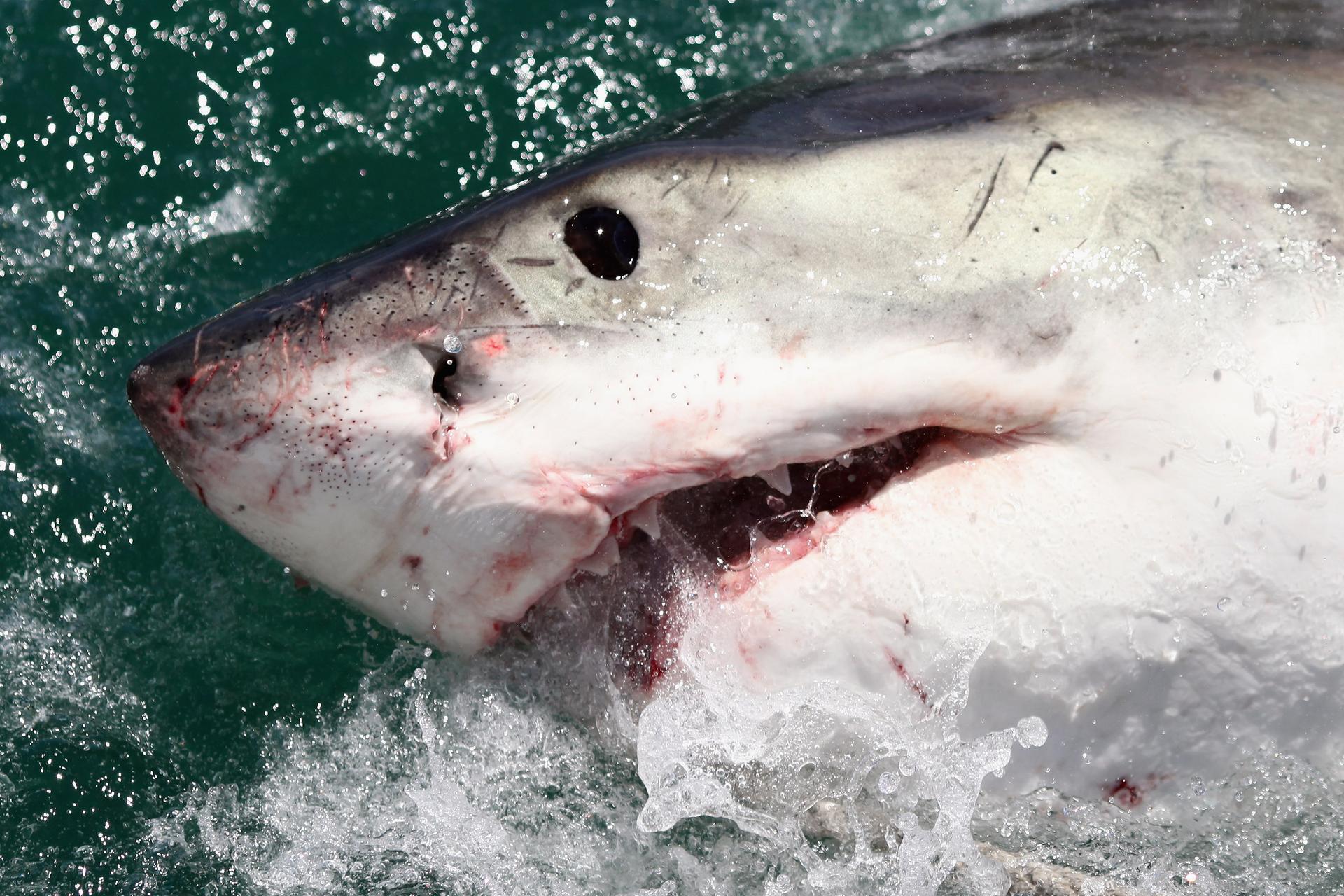Sharks with laser beams attached to their heads becomes reality
A Great White Shark is attracted by a lure on the ‘Shark Lady Adventure Tour’ on October 19, 2009 in Gansbaai, South Africa
Shark diver and TV host, Luke Tipple, has brought sharks with laser beams into the world.
What purpose did this serve, other than making Dr. Evil's dream come true?
Tipple said, "A month or so ago I was asked by a company in Hong Kong called 'Wicked Lasers' if I would strap a laser to a shark and 'take a few pictures' for them."
In a statement on his site, Tipple acknowledged as a true shark lover, he was hesitant to perform the stunt, until he realized he could get some research funding out of the deal.
Tipple said, "After talking to the companies owner and establishing that he actually has a deep affection for sharks I asked him if we might take a different, perhaps slightly more scientific approach to the suggested stunt. He agreed and the redefined mission was on. I would test a non-invasive attachment method and I'd also send the company footage of his laser in return for funding the research."
More from GlobalPost: Animals gone wild
Of the experimental nature of his stunt, Tipple told Wired, he was able to test a new clamping apparatus with special gel pads on the inside used as "tactile surface interaction," that would be much more comfortable to the shark. These clamps are commonly used to track and acquire data from sharks in the wild.
Prior to the experiment, Tipple also believed sharks would avoid laser light, but told Wired, “Although further testing is necessary, time and time again, sharks were actually attracted to the laser beam."
"I was only interested if we could find a real world or scientific application for the technology," Tipple told Australia's News.com
So should we worry about the weapons potential of marine life with lasers? News.com doesn't think so saying, "The shark was a ferocious lemon shark (Negaprion brevirostris), measuring more than two meters in length. The laser was, well, a little disappointing to be honest – a "low end of potential energy output."
Wicked Lasers and Tipple both note that no animals could be harmed by the laser. "The laser we were using was not strong enough to cause ocular or thermal damage to other sea life so, while it may look super threatening, the shark was still not very dangerous," Mr Tipple told News.com.
In about a month, the laser will fall off and nature will be back to normal.
More from GlobalPost: Hunters shoot and pay to save the rhino
Our coverage reaches millions each week, but only a small fraction of listeners contribute to sustain our program. We still need 224 more people to donate $100 or $10/monthly to unlock our $67,000 match. Will you help us get there today?
